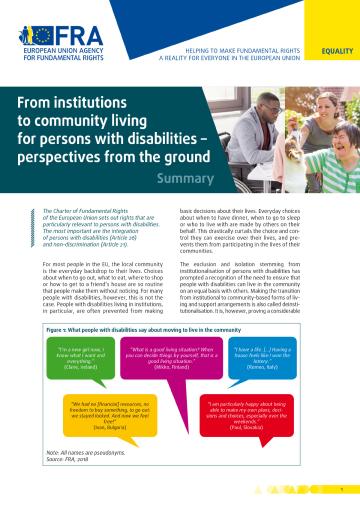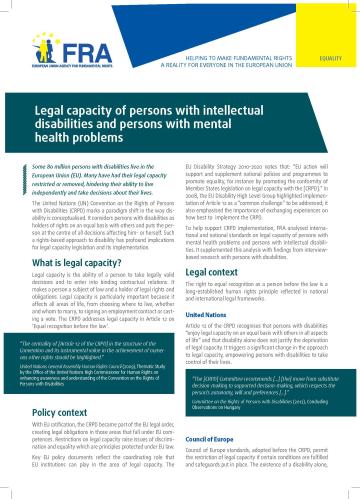
Legal capacity of persons with intellectual disabilities and persons with mental health problems
Equal recognition of persons before the law is a long-established human rights principle. Nevertheless, legal frameworks in many European Union (EU) Member States allow for the legal capacity of persons with intellectual disabilities and persons with mental health problems to be restricted or removed under certain conditions. These legal frameworks are now undergoing a transformation as the entry into force of the United Nations Convention on the Rights of Persons with Disabilities (CRPD) drives rapid and significant change across those states that have ratified the convention, including 24 EU Member States and Croatia as well as the EU itself.
Based on a rights-based approach to disability, which puts individuals at the centre of all decisions affecting them, the issue of legal capacity is being reframed in terms of the support that persons with disabilities may need to make decisions. This report by the EU Agency for Fundamental Rights (FRA) analyses the current legal standards on legal capacity across the EU, set against the backdrop of the experiences of interviewees who have had their legal capacity removed or restricted. The FRA report reveals the gap between the promise of the CRPD and the reality those with disabilities face in the EU every day, and, by so doing, hopes to contribute to closing it.





